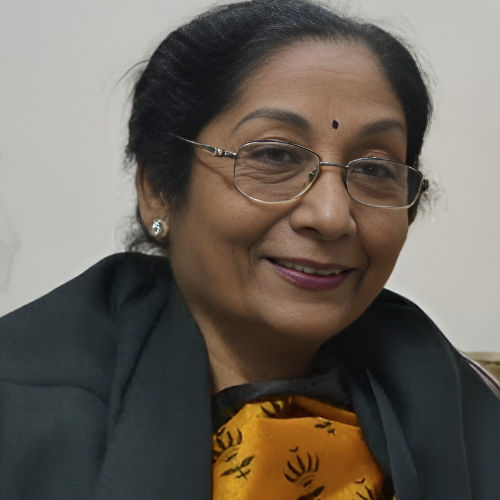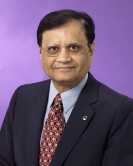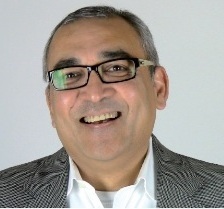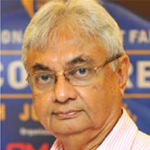
Priya Somaiya
Executive director
Usha Social Services
Sew far, sew good
The Usha Silai label from Usha International is all set for a retail launch. The brand is an outcome of the Usha Silai schools, a community-based initiative that reaches out to women in remote villages across the country. Priya Somaiya, executive director of Usha Social Services (USS), who heads the Usha Silai initiative, shares the story of the USS with Meher Castelino.
Fibre2Fashion: What is the Usha Silai story? When did it start? How has it been progressing?
Priya Somaiya:
There are 16,184 Usha Silai Schools which were started in August 2011 and are spread over 29 states and seven union territories. They are also in Sri Lanka, Bhutan and Nepal. Usha International, in collaboration with IMG Reliance, marks the inception of the sustainable fashion label Usha Silai. The brand is an outcome of the commitment of Usha's Silai schools, a community based initiative that reaches out to women in remote villages across the country. It aims to enable them to earn a living. Additionally, it empowers these women to establish themselves as entrepreneurs. The project was conceptualised in May 2017. Considering the potential of the skills and enthusiasm of female entrepreneurs, the project took shape and was launched in August 2017. There were 33 women involved in the final production that was showcased at Lakmé Fashion Week Summer/Resort 2018 on February 1, 2018 and the Usha Silai label was launched.
F2F: What is the difference between a classical and satellite Usha Silai school?
PS:
These are elementary terminologies to distinguish between the two. Classical are the schools where Usha directly trains on a seven-day residential module with a syllabus, which is in a local language. Signage and certificates are given along with a black sewing machine. The ladies from these Silai schools then open schools in their respective villages. The women are trained in the village Silai schools for three months. The Silai school teachers identify two good learners and they in turn set up the Satellite schools in the villages. These learners get signage and certificates, but don't give the machines. So Classical is where Usha trains them and Satellite is where the trained ladies open classes. This is the ripple effect that takes place. There are 5,000-plus Classical schools and 11,000-plus Satellites now. The ladies get job orders; they earn through teaching; and they learn to repair machines. Their earning is in the range of <span lang="EN-GB" style="font-size:11.0pt;line-height: 107%;font-family:"Calibri",sans-serif;mso-ascii-theme-font:minor-latin; mso-fareast-font-family:Calibri;mso-fareast-theme-font:minor-latin;mso-hansi-theme-font: minor-latin;mso-bidi-font-family:"Times New Roman";mso-bidi-theme-font:minor-bidi; mso-ansi-language:EN-GB;mso-fareast-language:EN-US;mso-bidi-language:AR-SA">₹2,000-45,000.
F2F: What is the partnership model with NGOs and others?
PS:
The NGOs help us identify the villages as they are already doing projects there. The other partnership is with corporates who have come forward, and under their CSR banner want to link up with us.
F2F: How many clusters are in the project?
PS:
- Kaladhera (Rajasthan) has worked with Amit Vijaya and Richard Pandav;
- Dholka (Gujarat) has worked with Soham Dave;
- Mastikari (West Bengal) has worked with Sayantan Sarkar; and
- Puducherry has worked with Sreejith Jeevan.
F2F: What is the tie-up with IMG Reliance?
PS:
IMG Reliance is the consulting partner. IMG Reliance has been providing consultancy services to Usha to boost the fashion quotient and product quality of garments produced by Silai school women selected by Usha in each cluster. IMG Reliance recommended and facilitated tie-ups for the label project with Indian fashion designers. The designers worked closely with the Silai women which boosted their fashion quotient and product quality during label launch. Now, the designers support during retail production as well.
F2F: What is the initiative #ReImagineFashion?
PS:
Usha International Ltd in consultation with IMG Reliance is working to create a new sustainable fashion project called #ReImagineFashion with its Silai women in rural areas. This initiative re-looks at the current narrative in the fashion business and partners with local Usha Silai communities'/female entrepreneurs to create fashion for the modern market made by the rural women ethically.
F2F: Usha Silai tied up with four designers during Lakmé Fashion Week Summer/Resort 2018. Will the project tie up with other designers too?
PS:
As of now, Usha Silai has tied up with four designers only; they will be with us till the retail launch of the Usha Silai label.
F2F: Will the garments designed by the four designers be kept by Usha Silai project or sold by the designers?
PS:
The garments are with the project, and more were added for the retail launch in mid-April 2018.
F2F: Where will the garments be sold?
PS:
Initially, the garments will be sold at Ogaan, a fashion accessories store located at Malcha Marg market, New Delhi and HAB by Usha at Mumbai.
F2F: How will the project help the women in the clusters?
PS:
The Usha Silai label project helped women in enhancing their existing sewing skills, giving them the overview of finishing/ aesthetics required for the label, and helped them in making high-quality garments. Whatever is sold at the retail outlets and whatever margins are left will go back to the women.
F2F: What benefits do the women get in the clusters?
PS:
- Enhance their existing sewing skills;
- Making of high quality garments with perfect finishing;
- Additional income to women through retail production.
F2F: What sort of garment production is done in the clusters?
PS:
At present, they have been doing production at a small level at the clusters; those would be enhanced based on retail orders.
F2F: What would be pricing for the garments?
PS:
That will be revealed at the retail launch.
F2F: Which models of the Usha machines have the women used?
PS:
Usha Rotary Stitch Master (RSM) with motor.
F2F: Will Usha Silai open exclusive stores for the garments like the HAB?
PS:
Opening exclusive stores is too soon to comment on. We will see how the response is and how things unfold after the launch.
F2F: Does Usha Silai have tie-ups with mills for the clusters?
PS:
Not yet; but we will expand the clusters.
F2F: What will happen to the income generated by the clusters?
PS:
The income generated would directly go to the women who are associated with this project.
F2F: Does each cluster produce a particular type of garment?
PS:
Yes, each cluster makes particular garments with regard to local ethnic designs, culture and weaves.
F2F: Is the embroidery on the garments also done at the clusters?
PS:
Yes, the embroidery is done as per the need and requirement for specific garments.
F2F: Tailoring as an art continues to thrive in small towns and cities in the form of the 'local tailor', providing great fits at very reasonable costs. The same exists in premium and luxury spaces as boutiques/madeto-measure etc. Any plans to tap into this and maybe give a more formal training to such women?
PS:
They won't turn into tailors, but they will surely enhance their skill level with the additional training that they will be getting. So, they can do better stitching, quality sewing and finishing. They are already doing that on their own. They are running their Silai schools and have the freedom to do anything they want to do. Our network will keep expanding and more opportunities will be there to learn and hone their skills.
F2F: What is the partnership model with NGOs and others?
PS:
Pradip Mehta
Anurag Batra
Fanny Vermandel
Abhay Gupta
Bill D’Arienzo
Gabi Seligsohn
Aseem Prakash
Rahul Mehta
Rahul Mehta
Arun Sirdeshmukh

20230103183907.png)








_8.JPG)

